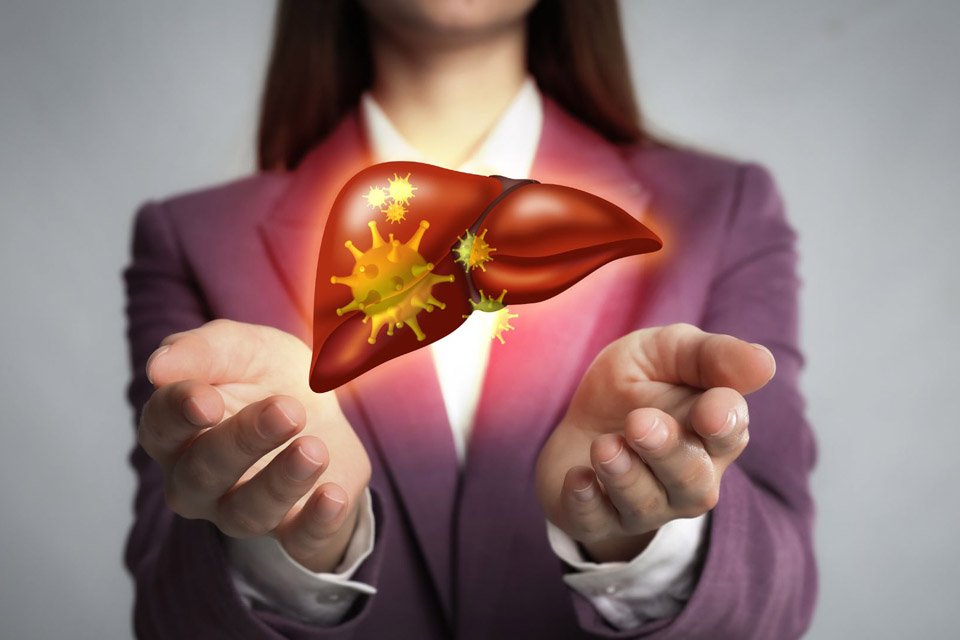The liver is our body’s silent worker. It detoxifies, aids digestion, regulates metabolism, and usually only demands attention when something goes wrong. On July 28th, World Hepatitis Day, it’s worth taking a moment to reflect on how we can protect this vital organ.
The expert team at HR-Pharma believes that prevention, screening, and a conscious lifestyle together form true protection. We’ve brought you everything you need to know about hepatitis and what you can do to safeguard your health.
Hepatitis includes inflammation of the liver from several different origins. The best known types are caused by hepatitis viruses:
- Hepatitis A virus (HAV) infection: Spread through contaminated food and water. Common among travelers. Preventable with vaccination.
- Hepatitis B virus (HBV) infection: Transmitted through blood and bodily fluids (sexual contact, needle use). Can cause serious chronic liver damage.
- Hepatitis C virus (HCV) infection: Spread through blood, often asymptomatic, but can lead to severe liver disease over time.
- Hepatitis D virus (HDV) infection: Can only replicate in the presence of hepatitis B virus, causing a dual infection.
- Hepatitis E virus (HEV) infection: Mainly transmitted through contaminated water and food, especially common in developing countries.
In many cases, the disease remains symptom-free for a long time, and only laboratory tests can detect the infection during this period. At HR-Pharma’s blood sampling points in Szeged, laboratory tests are available that quickly and accurately detect the presence of hepatitis antibodies:
- Anti-HAV Total: detection of total immunoglobulins against hepatitis A virus
- HBsAg, anti-HBs, anti-HBc: detection of hepatitis B infection, past or active
- Anti-HCV: detection of IgG antibodies against hepatitis C virus
- Anti-HEV IgG and IgM: detection of IgG and IgM antibodies against hepatitis E virus
There is a safe and effective vaccine against the hepatitis B virus, which is mandatory in childhood but can also be requested as an adult, especially for healthcare workers, travelers, or those at higher risk. Hepatitis C infection is now treatable with medication, but early detection through screening is crucial.
Liver-friendly lifestyle – small steps, big impact
The health of the liver largely depends on how we treat our bodies in daily life. Although it often works quietly behind the scenes, it is one of our most sensitive organs. By adopting a healthy lifestyle, we can do a lot to ensure it functions properly in the long term.
Reducing alcohol consumption, or ideally, abstaining completely, is one of the most important steps. Alcohol itself places a burden on the liver, but if viral hepatitis (especially caused by hepatitis B or C) is present, the extent of damage can increase dramatically. Therefore, if someone has had such an infection or belongs to a risk group, it is especially recommended to limit alcohol intake.
A safe sexual life is also of great importance for protecting the liver. The hepatitis B virus can be transmitted through blood and bodily fluids, so reliable physical protection, such as using condoms, as well as regular screenings and responsible partnerships can help prevent infections. Finally, if you plan to travel to areas where hepatitis A or E is common, heightened hygiene precautions are essential. Access to clean drinking water, safe food consumption, and, if necessary, vaccination all contribute to ensuring your vacation doesn’t end with a viral infection.
All these small decisions help preserve your liver’s health in the long term, and with it, your overall quality of life. HR‑Pharma supports you in recognizing risks early and making well-informed decisions about your health through targeted tests and expert advice.



